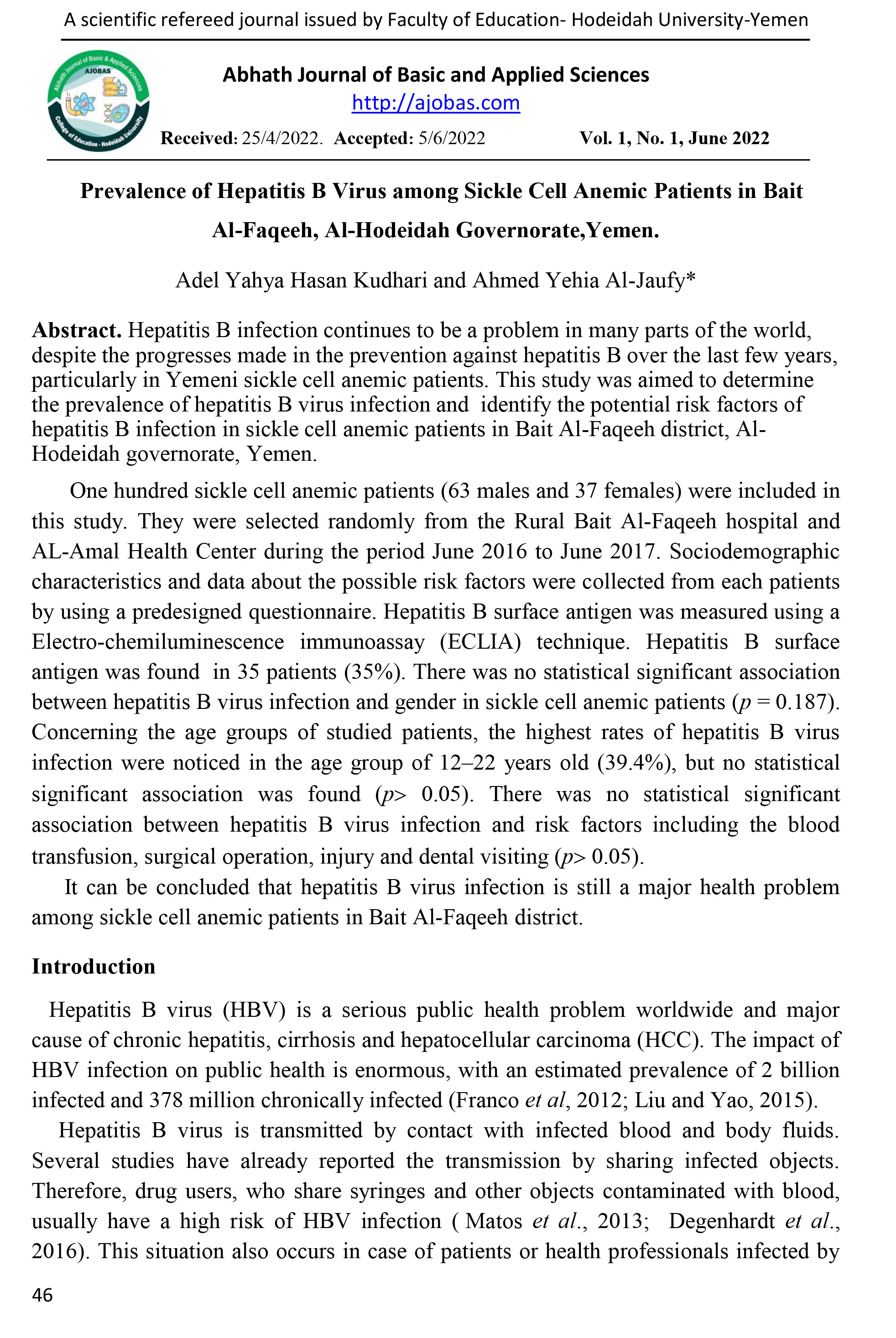Prevalence of Hepatitis B Virus among Sickle Cell Anemic Patients in Bait Al-Faqeeh, Al-Hodeidah Governorate, Yemen.
DOI:
https://doi.org/10.59846/ajbas.v1i1.361Abstract
. Hepatitis B infection continues to be a problem in many parts of the world, despite the progresses made in the prevention against hepatitis B over the last few years, particularly in Yemeni sickle cell anemic patients. This study was aimed to determine the prevalence of hepatitis B virus infection and identify the potential risk factors of hepatitis B infection in sickle cell anemic patients in Bait Al-Faqeeh district, Al-Hodeidah governorate, Yemen.
One hundred sickle cell anemic patients (63 males and 37 females) were included in this study. They were selected randomly from the Rural Bait Al-Faqeeh hospital and AL-Amal Health Center during the period June 2016 to June 2017. Sociodemographic characteristics and data about the possible risk factors were collected from each patients by using a predesigned questionnaire. Hepatitis B surface antigen was measured using a Electro-chemiluminescence immunoassay (ECLIA) technique. Hepatitis B surface antigen was found in 35 patients (35%). There was no statistical significant association between hepatitis B virus infection and gender in sickle cell anemic patients (p = 0.187). Concerning the age groups of studied patients, the highest rates of hepatitis B virus infection were noticed in the age group of 12–22 years old (39.4%), but no statistical significant association was found (p> 0.05). There was no statistical significant association between hepatitis B virus infection and risk factors including the blood transfusion, surgical operation, injury
and dental visiting (p> 0.05). It can be concluded that hepatitis B virus infection is still a major health problem among sickle cell anemic patients in Bait Al-Faqeeh district.

Downloads
Published
How to Cite
Issue
Section
License
Copyright (c) 2022 Adel Yahya Hasan Kudhari , Ahmed Yehia Al-Jaufy

This work is licensed under a Creative Commons Attribution 4.0 International License.




